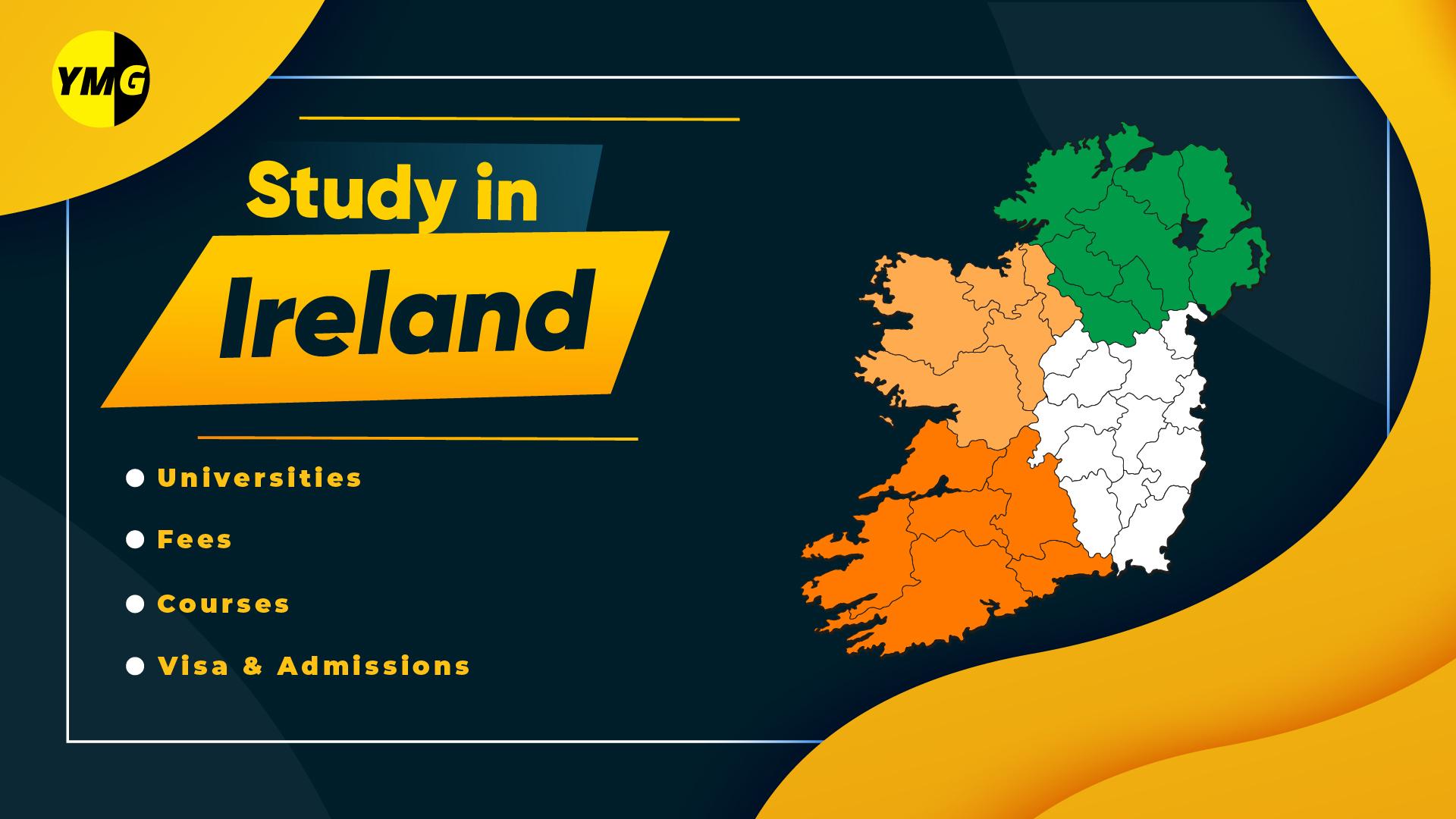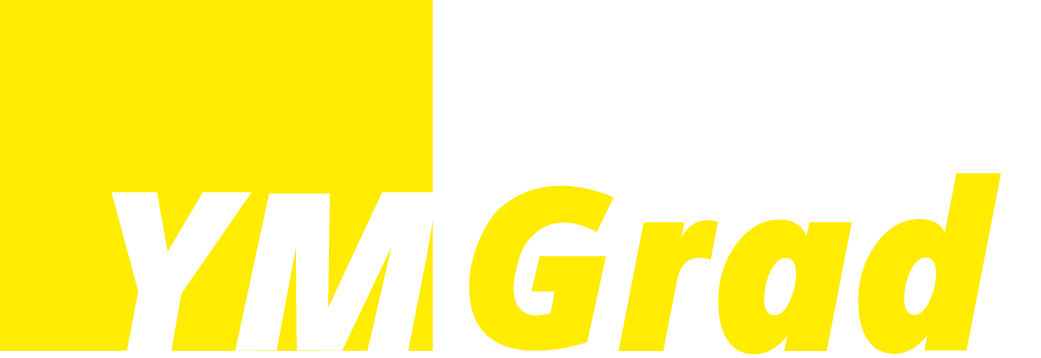Study in Ireland: Universities, Fee, Courses, Visa, & Admissions


Ireland provides a bright opportunity for international students to receive a world-class education. The number of Indian students in Ireland has grown by 10 times in the last 10 years. According to official statistics, more than 7000 Indian students studied in Ireland in 2023. With many top-ranked universities and beautiful cities packed with innovation, it's no wonder why thousands of young students are choosing Ireland to pursue their studies.
But how can you make your dreams of studying in Ireland come true? In this blog, we will explore everything you need to know.
Why Study in Ireland?
Let's discuss why studying in Ireland is a good idea for Indian students. Here are a few important factors based on real-life experiences and insights:
- Home of some of the best universities in the world
- Affordable cost of living as compared to many EU countries
- Part-time jobs (20 hours per week) while studying.
- Pathway to PR
- Pathway to invite family members permanently
Ireland has a welcoming culture and accepts immigrants from all over the world. The country provides multiple industry opportunities for international students.
Best Locations to Study in Ireland
Ireland offers several top-class locations for studying, each with renowned universities:
- Dublin: Trinity College Dublin, University of Dublin
- Cork: University College Cork, Griffith College Cork
- Limerick: University of Limerick, Mid West Business Institute
- Galway: University of Galway, Galway Technical Institute
Intakes in Ireland
When it comes to studying in Ireland, there are only two major intakes available throughout the year: Spring (January) and Autumn (September).
Intake | Starting Month | Deadlines | Nature |
Autumn Intake | September | June to July | Biggest Intake |
Spring Intake | January | September to October | Second Biggest Intake |
Due to the smaller number of applicants during the spring intake, students have a shorter window for application and submission, whereas in the autumn intake, students have a much longer time due to the large number of applications.
Best Programs to Study in Ireland
Education in Ireland has evolved with the latest developments in the global trends in technology and healthcare. As a hub for quality education, there’s a surge in demand for STEM courses among international students. Here are the top 8 fields that you should go for:
- Data Science
- Computer Science
- Business Analytics
- Finance
- Medicine
- Pharmaceutical Sciences
- Marketing
- Agriculture
Salaries in Ireland
So, once you've settled on a program, you might wonder about salaries, right? Here's the scoop: the average annual earnings for employees in Ireland are around €44,202 per year, or about €3,683 per month before taxes. And if you're curious about weekly earnings, they average around €850.05, according to the latest Central Statistics Office (CSO) stats.
Let's take a look at some popular average incomes in Ireland:
| Job | Average Annual Salary |
Dentist | €98,000 |
| Software Developer or Data Scientist | €65,000 |
Pharmacist | €63,000 |
Accountant | €55,000 |
Marketing Executive | €34,000 |
Cost of Studying in Ireland
Knowing the average education costs in Ireland is an important part of your financial preparation.
Degree Level | Annual Tuition |
Bachelor's | €9,000 to €25,000 |
Master's | €9,500 to €30,000 |
| Ph.D. | Fully Funded (Generally) |
PhD programs are typically fully funded, ensuring students focus on their research without financial burdens.
Language Tests
Universities in Ireland for international students require acceptable scores from specific exams. Here are the most common ones that you will need to take:
- International English Language System (IELTS)
- Test of English as a Foreign Language (TOEFL)
- Pearson Test of English (PTE)
Application Process
- Shortlisting the right universities is the first and most important step in your application process. You must thoroughly research all the courses offered in your discipline in Ireland. Make a list of institutions that suit your needs and add parameters like faculty, fees, and research labs.
- Percentage requirements: If you are applying for a Bachelor's degree in Ireland, you must have scored 60- 65% in your earlier high school qualification.
- Language Tests: Irish Universities accept scores from tests like IELTS and TOEFL, which are necessary for all international students.
- Standardized Tests: The top-ranked universities in Ireland ask for GRE and GMAT for MBA and Executive MBA courses. If you are applying for a Bachelor's program, your minimum SAT score should range from 1200-1500.
- SOP Drafting: The Statement of Purpose (SOP) is mandatory in your application to Irish universities. A well-written SOP can help your application stand out amongst applicants. Elevate your application with a standout SOP crafted by our experts, tailored to your unique aspirations. Click here to get yours!
- Applications: If you're ready to apply in Ireland, you'll want to know about the Central Applications Office (CAO). It's the main hub for undergraduate applications. But if you're eyeing postgraduate courses, you must go through an educational agency. Ready to begin? Click here to get started with us!
Irish Student Visa
If you’re not from the European Union/European Economic Areas, Switzerland, or belong to one of the countries on this list, you must apply for an Irish Student Visa. It normally takes eight weeks or longer to process, and you can apply up to three months before you arrive.
Click here for help with the complete visa application process with our experts.
If you wish to study in Ireland for less than 3 months, you should apply for a 'C study visa.' If your course lasts longer than 3 months, you should apply for a 'D study visa.'
Eligibility for an Ireland Student Visa
- A letter of acceptance from a recognized college or university in Ireland confirming that you have been accepted into a course of study.
- Evidence of your academic ability to pursue the chosen course through the English language (unless it is an English language course).
- Evidence that the fees for the course have been paid in full.
- Evidence that you or a sponsor have access to at least €10,000 for each subsequent year of your studies, in addition to the course fees for each year.
- Evidence that you have private medical insurance.
- Confirmation that you intend to return to your country of permanent residence when you leave Ireland.
Post-Study Work Permit
There are two major work permit visas in Ireland:
- The Critical Skills Employment Permit replaces the Green Card type employment permit. It is designed to attract highly skilled people into the labor market and encourage them to take up permanent residence in the state. Here's the Critical Skills Occupations List, where you can check your permit eligibility.
- The General Employment Permit allows you to work in occupations where there is a labor shortage in Ireland. You can get the permit to work in any job not on the Ineligible List of Occupations for Employment Permits and subject to the other qualifying criteria.
* To ensure that job opportunities are available to Irish and EEA nationals, the Irish Government demands a Labour Market Needs Test before a General Employment Permit or Contract for Services Employment Permit can be issued to a non-EEA national.
Permit Type | Duration | Labor Market Needs Test | PR Eligibility | Extendable | Dependents |
Irish General Work Permit | 2 years | Needed | 5 years | Yes | Need to wait 12 months |
Critical Skills Employment Permit | 2 years | Not needed | 2 years | Yes (Easier) | Can apply immediately |
Connect With Us!
We hope this blog post has shed light on studying in Ireland and all its opportunities. Do you want us to take care of your complete application? We make sure that every part of your application is consistent, coherent, and perfectly crafted, as the committee would expect in the case of their ideal candidate.
Even if your profile is impressive, a different perspective can make you look better than most applicants out there. We believe this perspective exists for every applicant out there, including you. Let's find that perspective for your case and craft an exceptional application specific to your profile.
Frequently Asked Questions!

During the academic year, non-EEA students are permitted to work up to 20 hours per week. Up to 40 hours per week may be worked during the holidays (December 15 to January 15 and June 1 to September 30 only).

After finishing the 12th grade, a study gap of up to two years is usually permissible in Ireland. Longer gaps may be tolerated by certain colleges if they can be adequately filled with worthwhile experiences or pursuits.

The International English Language Testing System (IELTS) is the most preferred English language proficiency test accepted by almost all institutions in Ireland.

During the academic year, all Indian students are permitted to work 20 hours per week; however, during the months of May, June, July, and August, as well as from December 15 to January 15, they are permitted to work 40 hours per week.

According to the official website of the Irish Immigration Center: You can stay up to seven years as a student. If you have studied before in Ireland it will count towards your total time as a student. If you are a new student attending English language programs can get permission for up to two years (i.e. three x 8 months).

If you are sixteen or seventeen years old, you need to obtain your parents' or guardians' written consent in order to reside and travel freely in Ireland. You also need to have your guardian's contact details. When you apply for a visa, your IDP counselor will help you with this.

The minimum wage in Ireland is around 8.65 Euros/Hour (depending upon work)

A person can seek for permanent residence in Ireland after five years of residency. If you are traveling as a student, your academic record and professional background will be far more important in determining whether or not you are granted permanent residence in Ireland.

Jobs like survival employment, sales, store assistant, and cashier are examples of easily accessible professions. Employment opportunities in the aviation sector and for IT specialists are growing.

Ireland has a large selection of courses to help you advance your education. Since Europe is a developing IT hub and business programs are well-known there, most students choose computer and information technology degrees in order to increase their chances of finding employment.




